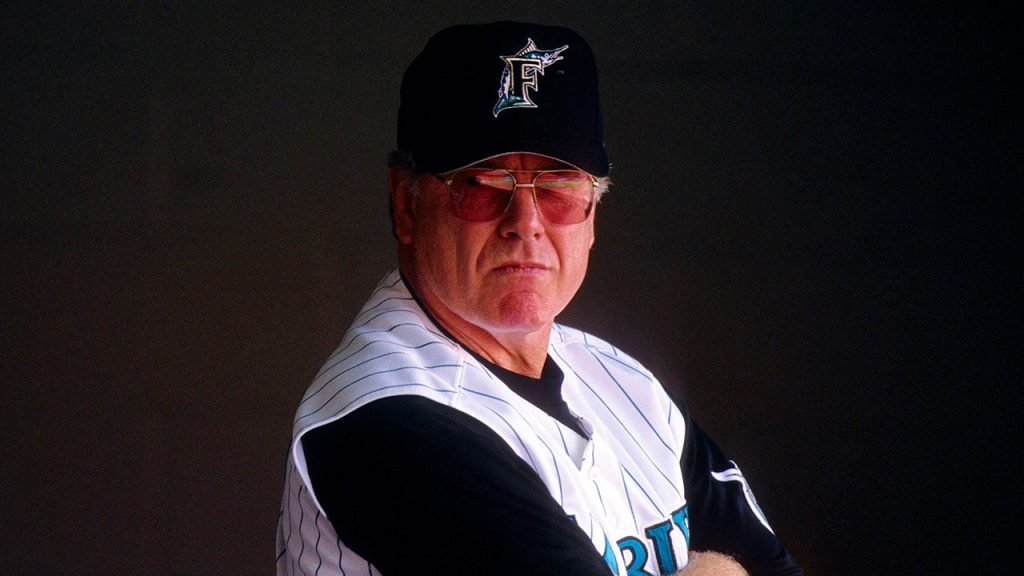Jeff Torborg, a prominent figure in Major League Baseball both as a player and manager, passed away at the age of 83. His baseball journey began as a catcher, a position he held for ten seasons in the major leagues, primarily with the Los Angeles Dodgers and California Angels. A key member of the Dodgers’ 1965 World Series championship team, Torborg transitioned into managing after his playing career, leading several teams including the Chicago White Sox, Cleveland Indians, New York Mets, Montreal Expos, and Florida Marlins. While his managerial career saw its share of ups and downs, Torborg’s contributions to the sport spanned decades, leaving a lasting impact on the teams and players he worked with.
Torborg’s playing career, though not marked by exceptional offensive statistics, was nonetheless significant. He provided a steady presence behind the plate, demonstrating defensive prowess and the ability to handle pitching staffs. His time with the Dodgers culminated in a World Series victory in 1965, a testament to his value as a team player and contributor to a championship-caliber squad. While his batting average remained modest throughout his career, his defensive skills and ability to work with pitchers were highly valued. This foundation as a player laid the groundwork for his eventual transition into managing, where his experience and understanding of the game proved invaluable.
Torborg’s managerial career, which spanned eleven seasons, was marked by both successes and challenges. He took the helm of several teams, each presenting unique circumstances and opportunities. One of his most notable achievements came in 1990 with the Chicago White Sox, where he led the team to a remarkable 94-68 record, a substantial improvement over the previous season. This accomplishment earned him the American League Manager of the Year award, solidifying his reputation as a skilled strategist and leader. However, despite this impressive turnaround, the White Sox narrowly missed the postseason, a recurring theme in Torborg’s managerial tenure.
While the 1990 season with the White Sox represented a high point, Torborg faced difficulties with other teams. His time with the New York Mets, Cleveland Indians, and Montreal Expos did not yield similar levels of success. He often found himself managing teams in transition or facing rebuilding phases, which presented inherent challenges. Despite these hurdles, Torborg consistently demonstrated a dedication to the game and a commitment to developing his players. His approach emphasized fundamentals and teamwork, values he carried with him from his playing days.
Perhaps one of the most intriguing chapters in Torborg’s managerial career unfolded with the Florida Marlins. He began the 2003 season as the team’s manager but was ultimately replaced mid-season by Jack McKeon. The Marlins, under McKeon’s leadership, went on to win the World Series, a bittersweet outcome for Torborg. While he wasn’t at the helm for the championship run, his early season contributions undoubtedly played a role in shaping the team’s trajectory. This unusual turn of events highlighted the unpredictable nature of baseball and the fine line between success and disappointment in the managerial ranks.
Beyond his on-field contributions as a player and manager, Jeff Torborg also spent time as a broadcaster, further showcasing his deep knowledge and passion for the sport. He possessed a keen analytical mind and an ability to articulate the nuances of the game, making him a respected voice in the broadcasting booth. His career, in its entirety, reflected a lifelong dedication to baseball. From his days as a catcher to his years as a manager and broadcaster, Torborg left an indelible mark on the game. His legacy extends beyond wins and losses, encompassing his commitment to the sport, his mentorship of players, and his enduring love of baseball. His passing marks the loss of a true baseball figure, one whose contributions will be remembered by fans and colleagues alike.

